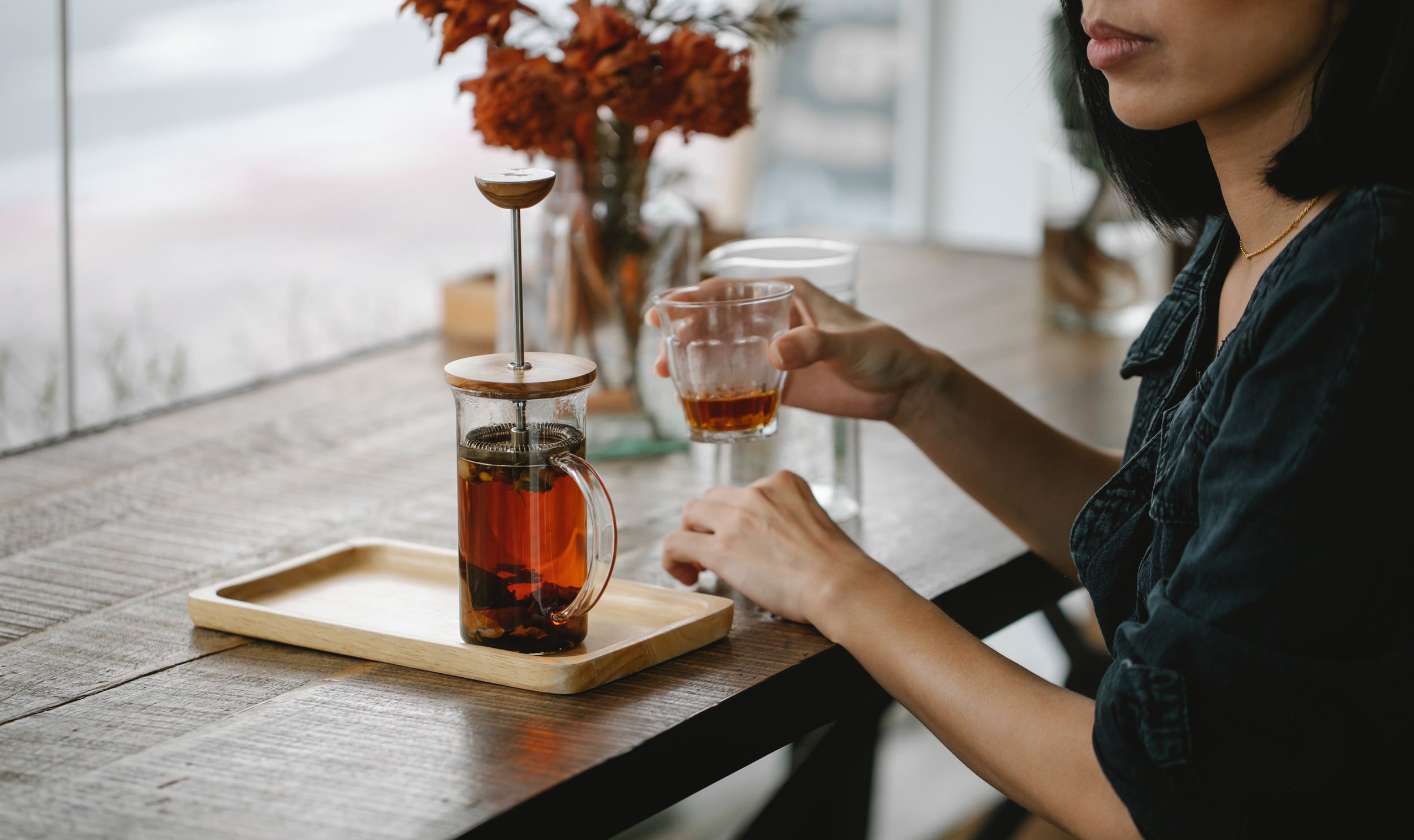Coffee and your gastritis need to have ‘the talk’.
I know you don’t want to hear this but if you’ve been diagnosed with IBD of any sort, you should probably limit your coffee intake. When I was first diagnosed with my ulcer, I scoured the internet for loopholes in the system, but after tons of effort and hope, I realized there was only one solution - to ‘simply’ take a break. Now, I have Cuban heritage and started drinking espresso at a young age… coffee was always part of my identity. Partner that with living full time in New York City and working part-time at a bustling brunch spot in Williamsburg… I was up to 3-4 cups a day. Despite my habits and my sense of identity, I had to nix it completely. And it was HARD. It wasn’t until I really had to quit that I realized how completely addicted to caffeine I was.
Quitting any addiction is hard. Whether or not you were hopelessly reliant on your morning brew(s) like I was, removing anything from your daily routine takes a lot of patience and adjustment.
It starts with recognizing that that caffeine is a drug, and should be consumed in moderation. While it’s hard to standardize, here are the general amount of caffeine in your average energy drinks.
Coffee: 100-200mg
Black Tea: 30-60mg
Green Tea: 15-30mg
Soda: ~40mg
Energy Drinks: ~130mg
What Caffeine Does to Your Body
When you drink coffee/caffeine your central nervous system kicks into overdrive, sending your gastric system, muscular system, and mental state into hyperactivity. When your gut isn’t leaky, or the integrity of your mucous membranes are intact, these side effects are generally okay. However, if you’re reading this, it’s likely you have gastritis or something similar. Let’s explore the impact of caffeine on your body as a gastro-compromised individual.
Gastric System
Coffee increases the amount of acid created in the gastric system due to its stimulating properties, and if you have an open ulcer, a tendency toward acid reflux, or GERD of any kind, increasing your natural acid production could be incredibly painful or detrimental. We want to regulate those acid levels, not kick them into high gear.
Muscular System:
Ever get that bouncy leg feeling when you have too much coffee? It’s because your brain is sending messages to your muscles telling them it’s time to GO, aka… muscle contraction! When your body is tense with an overload of energy, the muscles around your stomach contract, causing pain or discomfort to this otherwise damaged or weak organ. It’s the same way your doctor tells you to wear loose clothing when you have GERD… for now, compression = pain.
Mental State:
It’s no secret that you feel ‘up’ when caffeine enters your system, and your state of mind is no exception. On a good day, an energetic euphoria may wash over you, and one bit too many, it can quickly cascade into a jittery pit of anxiety. Your mental state massively affects how your stomach, and the rest of your body, function.
Reducing and limiting coffee is difficult, but not impossible. There are a myriad of options out there, but my favorites were Teechino, Dandy Blend.



